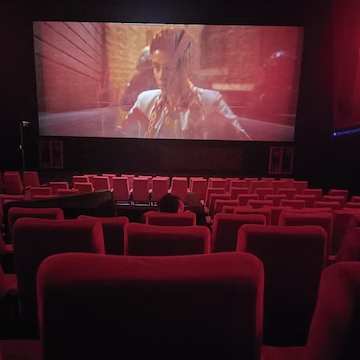In India’s rapidly evolving film industry, creators are constantly looking for ways to refine their storytelling before a movie’s release. Movie test screenings and focus groups have emerged as a crucial step in that process. These early audience previews help filmmakers gauge reactions, identify weak points, and adjust the film accordingly. But how effective are they really, and what role can technology play in improving this feedback process?

Understanding the Purpose of Movie Test Screenings
Movie test screenings serve as controlled environments where filmmakers can observe genuine audience reactions before the final release. The concept is simple yet powerful — invite a sample audience, screen the film, and collect feedback. This feedback can reveal pacing issues, unclear plot points, or moments that fail to connect emotionally.
In Hollywood, this practice has long been standard. However, in India, it’s still gaining traction. With a growing audience that values strong narratives and polished visuals, test screenings can help creators fine-tune every detail of the screenplay before the final cut.
Yet, organizing these screenings and analyzing audience data manually can be time-consuming. That’s where modern tools like Studiovity AI can step in and revolutionize the way filmmakers handle post-production and creative decisions.
How Studiovity AI Enhances the Feedback Process
Studiovity AI goes beyond traditional pre-release analysis. Its smart pre production software supports filmmakers from the very first stages of development to post-production refinement.
Imagine running a test screening where audience feedback is automatically mapped to specific scenes or sequences using AI-driven tagging. With features like script breakdown and film scheduling, the system can identify which segments of the movie received lower engagement and link them directly to the associated shooting schedule or creative notes.
This integration gives filmmakers a clear roadmap to address audience concerns without disrupting the entire workflow. By reducing guesswork, Studiovity allows teams to make data-informed creative decisions — something that test screenings alone often can’t achieve.
Why Test Screenings Matter in Indian Cinema
The Indian audience is incredibly diverse, with cultural nuances and emotional expectations that vary across regions. A scene that resonates in Mumbai may not have the same effect in Chennai. That’s why feedback from focus groups becomes invaluable.
These sessions reveal how audiences from different backgrounds perceive the story, humor, or dramatic tension. The results often lead to edits that improve clarity and enhance relatability.
With Studiovity AI, filmmakers can seamlessly coordinate between departments to implement these changes. The film production calendar keeps revisions organized, ensuring that editing, dubbing, and reshoots align perfectly. This structured approach prevents last-minute chaos and saves valuable production time.

From Script to Screen: How Technology Refines Creativity
Traditionally, directors relied on intuition or limited audience surveys. Today, technology like Studiovity helps blend artistic vision with measurable insight. Through AI-driven analytics, a filmmaker can see not just what the audience felt, but why they felt that way.
For example, if a romantic sequence didn’t connect, the AI could highlight correlations between lighting, dialogue pacing, or even background score intensity. This empowers creators to fine-tune specific details without compromising their vision.
Moreover, tools like shot list and call sheet features ensure that when reshoots or adjustments are needed, the cast and crew can instantly access updated plans. The result? Smooth coordination and faster turnaround — essential in today’s competitive OTT-driven market.
Do Test Screenings Actually Help Filmmakers?
The answer lies in how effectively feedback is used. Many filmmakers treat test screenings as a checkbox step rather than a learning opportunity. But when handled strategically — and supported by intelligent tools — these sessions can transform a good movie into a great one.
Indian filmmakers like those behind Gully Boy and Andhadhun have benefited from private screenings that influenced final edits. The insights derived from audience reactions helped shape tighter, more emotionally resonant films.
By combining traditional audience testing with modern AI support, creators can ensure that storytelling and production decisions align with viewer expectations. Studiovity AI’s seamless workflow management makes this process practical, efficient, and creative at the same time.

The Future of Test Screenings in India
As India’s film industry grows more global, the role of movie test screenings will expand. Audiences now expect quality, depth, and technical precision across genres. Studios, too, are recognizing the importance of early feedback loops before final release.
By incorporating AI tools like Studiovity into the workflow, filmmakers can go beyond surface-level surveys and dive deep into meaningful audience insight. This marks a shift from subjective testing to data-supported storytelling — a balance between intuition and innovation.
Final Thoughts
Test screenings and focus groups are more than just preview sessions; they’re powerful tools for shaping impactful cinema. As India’s storytellers embrace technology, solutions like Studiovity AI stand at the forefront of this evolution — turning raw feedback into creative opportunities.
With its integrated tools for planning, collaboration, and analysis, Studiovity ensures that every story reaches its emotional peak before it hits the screen. That’s the true power of merging artistry with intelligence.